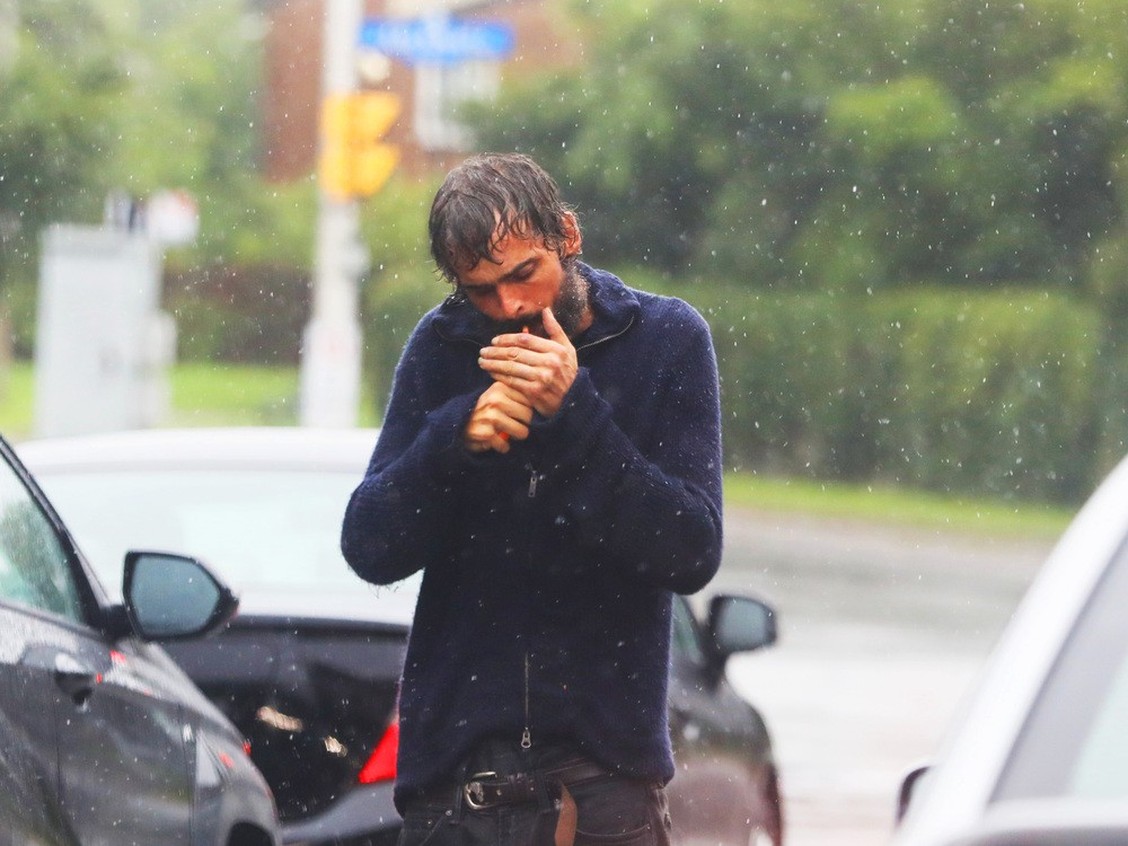Organized Crime and Contraband Cigarette Sales
 |
| A man lights a cigarette in rain at the intersection of Murray St and King Edward in Ottawa, August 09, 2024. Photo by Jean Levac /Postmedia |
"I think the biggest takeaway is that this is a pan-Canadian problem.""It's hitting every single province. It's fuelling organized crime and violence in every community across the country, and it's something that there's been really no attention from the federal government on at all.""We're seeing closures across the country, particularly in rural areas. How does a legal, responsible retailer compete with $5 packs of cigarettes?"Sara MacIntyre, Convenience Industry Council of Canada vice-president for Western Canada"It was no longer an issue of somebody driving into a First Nations community buying 200 'rollies' and then hitting the road.""It is absolutely organized crime at the highest level. It's a billion-dollar industry for [organized criminal groups].""It involves all the levels of violence, and extortion and gangsterism that comes along with it.""It's an issue where organized crime groups have made partnerships with individuals in Indigenous communities that have access to either manufacture or distribute large amounts of contraband tobacco and so those partnerships are really what has caused this issue, along with heavy taxation, to really flourish."Rick Barnum, executive director, National Coalition for Contraband Tobacco
 |
| Peter Bruni-Bossio, senior manager in charge of investigations for Alberta's north at Alberta Gaming, Liquor and Cannabis, showed these packs as the types that are used for illicit tobacco. (Dayne Patterson/CBC) |
Canada now has a growing illicit industry in contraband cigarette sales, surpassing legal sales of tobacco across the country. A new study commissioned by the Convenience Industry Council of Canada representing retailers and convenience stores across the country, reveals that contraband tobacco is accountable for 29 percent of the market in Alberta, 38 percent in Nova Scotia, 45 percent in Manitoba, and 52 percent in New Brunswick.
Quebec alone has a provincial task force which has been cracking down on tax evasion in the tobacco industry for the past several decades In Quebec the proportion of illicit tobacco sales comes to 11.9 percent. According to the study, in 2023 alone the resulting provincial tobacco tax revenue loss is likely to have been over $102 million in Alberta, $54 million in Nova Scotia, $60 million in Manitoba, $42 million in New Brunswick and $58 million in Quebec. The combined total reaches a loss of $316 million.
Calculating for the past three years, the tax revenue loss for the provinces may have totalled over $760 million. Gross sales revenue generated by the sellers of contraband cigarettes in the five provinces for the three-year period under discussion is estimated at over $1.3 billion. Contraband cigarettes accounted for up to 45 percent of the total market in British Columbia, 50 percent in Ontario and up to 44 percent in Newfoundland and Labrador, resulting in lost revenue in the billions.
Former deputy commissioner of the Ontario Provincial Police Rick Barnum, stated that contraband tobacco only became an issue for the OPP about a decade ago. Contraband cigarettes mostly originate on First Nations reserves in Ontario and Quebec, but now low-cost tobacco products have become a "major selling feature" for known and established organized criminal groups like the Hells Angels.

Not only are contraband cigarettes considered more profitable than cocaine, those revenues generate profits for organized crime groups, helping to fund their other illegal activities. Much as profits from Canada-wide car thefts that have escalated in the past several years, also are involved in funding criminal activity in the import of proscribed and illegal firearms into Canada from the United States. Still, Mr. Barnum feels the issue is not Indigenous, rather in those communities some individuals are responsible for collaborating with criminal organizations.
A clear link between the temporary closure of tobacco manufacturing operations on First Nations reserves at the onset of the pandemic in mid-March of 2020 has been linked through a study from Ernst & Young with a dramatic rise in legal tobacco sales. Legal sales of cigarettes rose between 44 and 47 percent in Atlantic Canada which had imposed travelling restrictions outside the 'Atlantic Bubble'.
With the reopening of on-reserve cigarette factories and distribution networks in July of 2020, legal sales "plummeted back down to pre-pandemic levels", the Ernst & Young report noted.
 |
"I don't believe the average person that goes out and buys contraband cigarettes really understands how directly their money goes into organized crime."Rick Barnum
Labels: Canada, Contraband Cigarettes, Illicit Cigarette Sales, Impacting Provincial Taxes. Links to Crime Syndicates, Indigenous Communities

0 Comments:
Post a Comment
<< Home